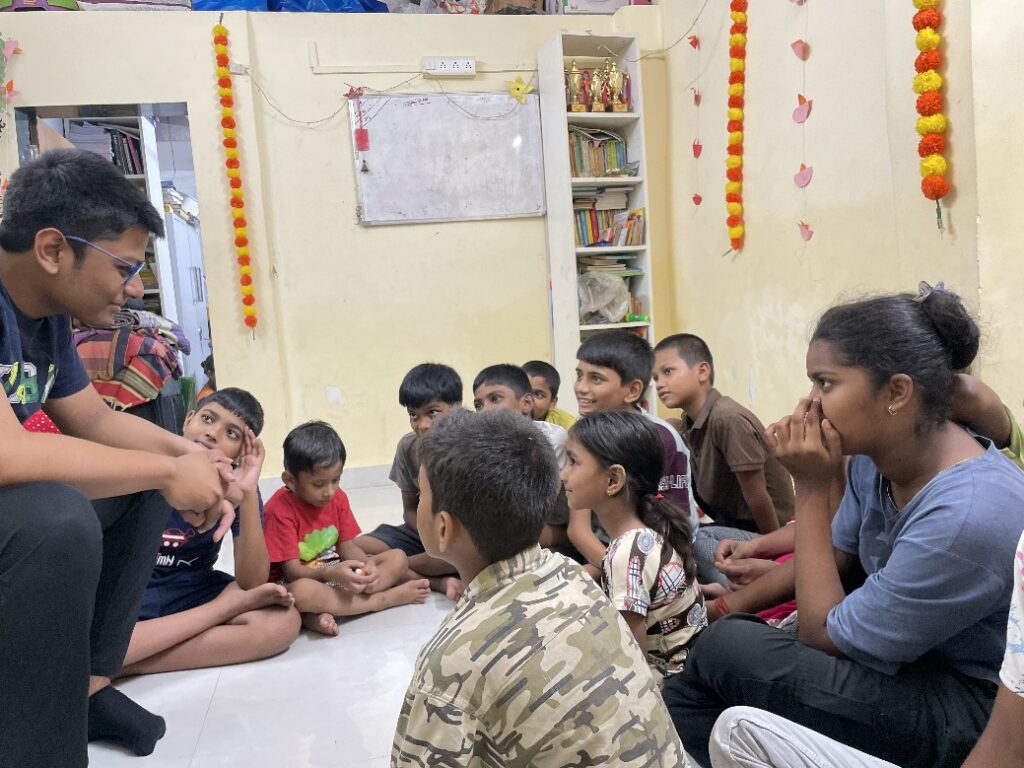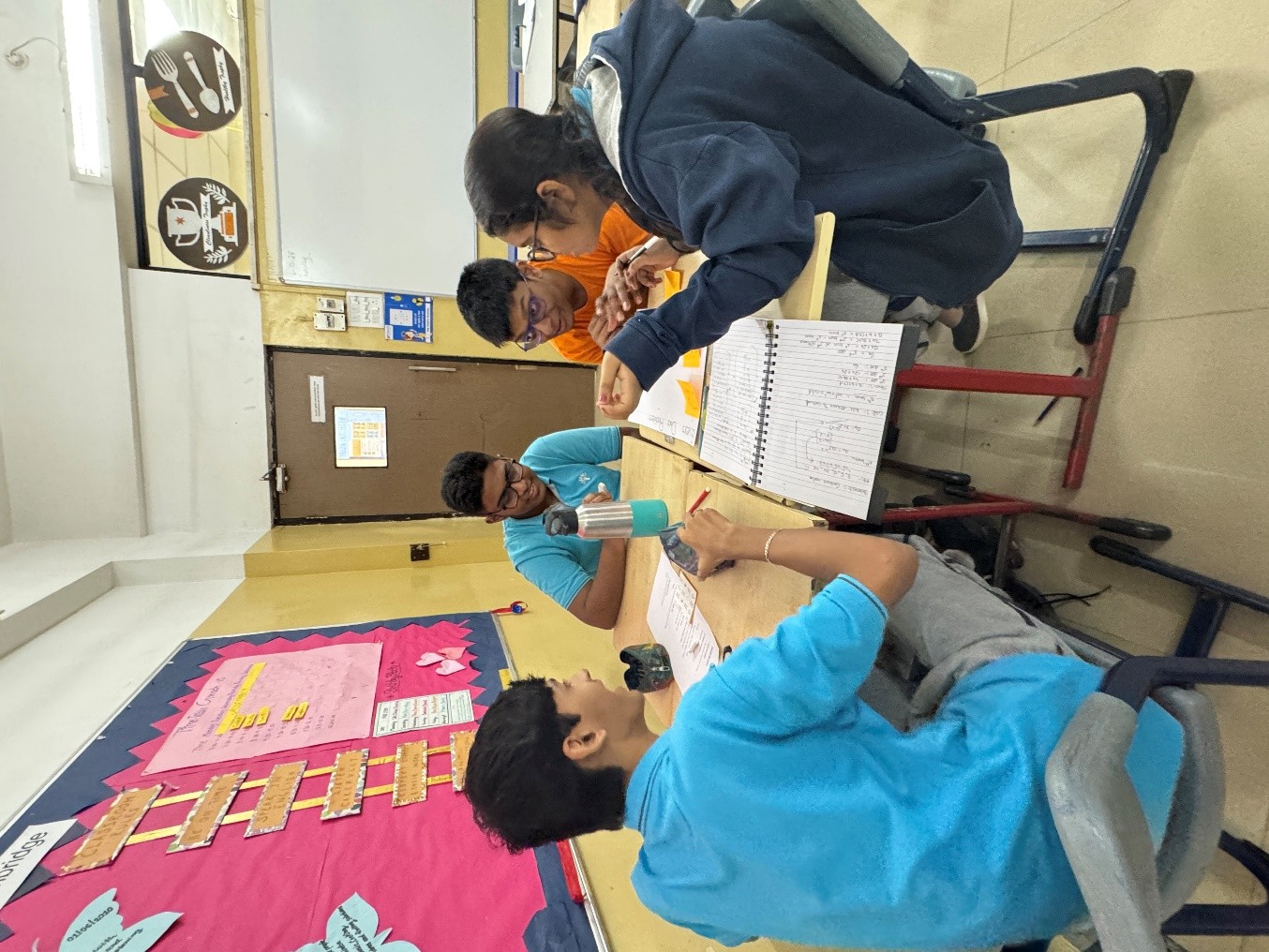
At just 17, Agastya Varshney, a student of Podar International School Santacruz, is leading a growing team of young mentors through his self-founded initiative, Prajna– a design thinking and ethics program tailored for underprivileged and visually-impaired children across Mumbai and New Delhi. It is striving to empower these children to solve the problems around them by nurturing the power of empathy, problem-solving, and social innovation.
3 years back, when he began mentoring younger students in robotics, he noticed something deeper than just curiosity for machines- a hunger to solve everyday problems. That realization led him to start Prajna in 2022. Since then, Prajna has reached over 2200 students in multiple batches across 35 NGOs and schools, guiding them through projects that turn empathy into action. “Students are often told to solve global issues like climate change,” says Agastya, “but the potholes outside their homes or the lack of safe street lighting affect them every day- and those are worth solving too.”
In each session concepts of ideation, ethical reasoning and community centred thinking are taught through locally grounded projects. Students learn to identify issues in their daily lives, brainstorm solutions, and prototype their ideas using simple materials. These structured design thinking phases to propose and prototype creative solutions produces results are both practical and heartwarming- from cardboard models, devising awareness campaigns for health and sanitation, to moderated English-learning WhatsApp groups that now connect over 120 students from different schools.
The idea grew out of Agastya’s earlier outreach work, when he and his robotics team set up innovation labs in under-resourced schools with support from CSR partners such as Sona Comstar and Zanzen Pharma and is setting up more labs. He realized that lasting impact required more than access to technology- it needed a mindset shift toward human-centered problem-solving.
Under his leadership, Prajna has also begun developing a vernacular card game that helps low-resource educators teach design thinking through activities and engagement. Agastya personally trains volunteers- many just a few years older than the students they teach- to lead sessions, ensuring the initiative sustains itself through a growing network of youth mentors.
Key members of his team include: Sohm Aanchan, Ranveer Chakraborty, Manit Bafna, Aarush Katiyal, Dhruv Lakkad from Mumbai and Garvit Jain, Prajit Mittal, Kyna Behl and Rudransh Awasthi from New Delhi.

Agastya remains focused on refining the Prajna model. “Every course ends with feedback — from both students and teachers. That’s how we improve,” he says. “Our goal is not to teach for a test, but to build the confidence to take initiative.” Prajna contributes directly to Sustainable Development Goal 4, particularly SDG 4.4 (skills for innovation) and SDG 4.7 (education for sustainability and global citizenship). But for Agastya, impact is measured less by numbers and more by mindset shifts.
He has connected with the Rotary Club to reach more NGOs.At school, he continues to guide peers in launching their own service projects as part of the IB Diploma Programme’s CAS component.
Looking ahead, he plans to expand Prajna’s network of innovation labs, ensure year-round programming, and pilot the design-thinking card game across new regions. He’s also exploring partnerships to bring the model to rural communities where exposure to design thinking is virtually non-existent. “The goal,” he says, “is to make design thinking as accessible as math or science — something every child can use to build a better world around them.”


